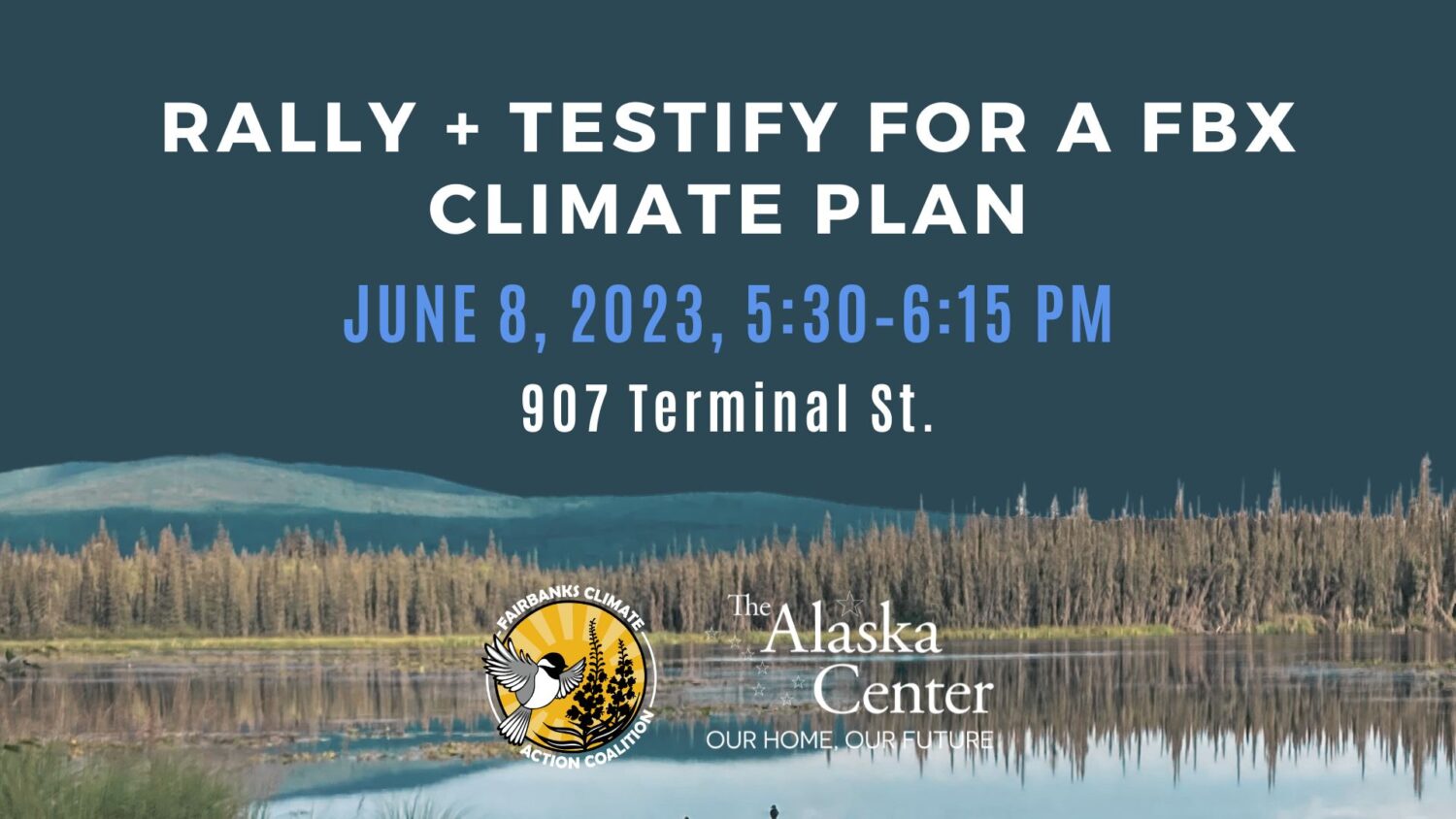The Fairbanks North Star Borough Assembly will decide on whether to approve a climate action and adaptation plan (CAAP) Thursday night.
The Assembly commissioned the plan just two years ago when it formed the Climate Action Committee and hired RESPEC to conduct outreach, information and goals to address climate change concerns within the borough.
The committee approved the plan on May 8 and pushed it on to the assembly with a recommendation to adopt it. The Assembly then advanced the amended draft plan and its adoption resolution to a public hearing Thursday, with only Assemblymember Mindy O’Neall voting against it.
The amended plan includes one 37-page chapter full of recommended actions and goals and an extensive set of references and appendices.
Recommended actions and goals include continued monitoring of borough-owned buildings to lower energy costs, weatherization of older facilities and more energy efficient new construction and a push to diversify the borough’s vehicle fleet when making new purchases.
It also encourages the development of renewable energy sources, a more robust transit plan and strategically capitalizing on existing natural gas infrastructure.
The amended version has drawn a lot of criticism from local residents, environmental advocacy groups and some Assemblymembers, along with opposition from residents who believe the borough shouldn’t be involved in adopting a climate action plan.
The committee voted to move most of the plan’s chapters to reference material and appendixes and keep the action chapter as the primary source. Most committee members stated that the action plan chapter was the main focus of their revisions.
The Fairbanks Climate Action Coalition and Alaska Center plan to hold a rally to raise awareness Thursday night before the meeting about the “gutted plan” and urge the Assembly to either amend or restore the draft full plan.
Alyssa Quintyne, Alaska Center’s Interior community organizing manager and one of the rally organizers, said the adopted plan essentially relegated two years worth of community feedback and outreach to the back.
“The rally is really to raise a message that we have followed the process to a T, we’ve had people on the previous committee who worked not just with folks in the community but also experts and workers to make a solid plan,” Quintyne said Monday.
The committee’s old members were replaced by new ones by new Assembly Presiding Officer Aaron Lojewski after the Assembly re-organized in October 2022. The new members were tasked with reviewing and re-working the plan to better align with things the borough could accomplish.
The removed chapters contain information on existing climate conditions and challenges in the borough, greenhouse emission goals, testimony and references of conditions caused by a changing climate and education goals.
The amended plan, with its narrower scope, has still drawn opposition.
At a May 26 special meeting, North Pole resident Sally Duncan said the borough shouldn’t be involved in developing a plan.
“It should not be a goal ... the borough does not have the authority to do so,” Duncan said.
North Pole resident North Pole resident Rita Trometter had called it government overreach despite any perceived good intent.
“It has its drawbacks in that it costs excessive amounts of money to implement and to run,” Trometter said. “Grant writers are very costly and our state is very good at placing lots of words on paper with ideas that go nowhere — the borough does not need to follow in their footsteps.”
Quintyne, with the Alaska Center, said the removed chapters essentially reduce the CAAP’s effectiveness and has effectively become a politically local hot topic when it shouldn’t be one.
“It’s a climate action plan to help us prepare for the next storm that happens,” Qunityne said. “Whether you agree with it or not, that’s what they have to do.”
Quintyne added she hopes Assemblymembers will make decisions or amendments to make the plan “more robust” and adaptable to climate change preparations.
“It will directly impact everything from transportation to how buildings are going to be coded and function to the management of snow,” Quintyne said. “You’re either prepared or not, the borough is preparing its staff and residents for another long-term emergency or not.”
She added there are already long-term implications from climate change, such as increased wildfire conditions, thawing permafrost and the December 2021 “Snowpocalypse” weather event that was responsible for a near-record snowfall and freezing rain.
“We’re already being impacted, so this is serious,” Quintyne said. It’s not a ‘both sides’ situation.”

